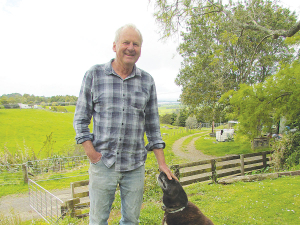All farmers will be worse off if planned reductions in Federated Farmers' policy team proceed.
That's the view of Feds' Franklin sub-provincial president Bruce Cameron, who says the bulk of people who aren't members of the federation have no idea of the work it does.
"There are so many freshwater farm plans, biodiversity and agricultural emissions regulations. A huge load has come on and that's required a huge amount of work," he told Rural News.
"If farmers lose the advocacy that the federation does dealing with regional plans, they will really see the costs piled on."
Recently, Cameron was one of four farmers giving evidence to the Environment Court hearing into Waikato Regional Council Plan Change One (PC1) where he says policy staff have worked late into the night and at weekends helping to put submissions together.
"If anyone tried to put a case together themselves as an individual it would cost them over $200,000," he says. "Not only would there be the considerable legal fees involved but other specialist knowledge would need to be called on which the federation could access."
While Cameron appreciates the $800-900 annual federation sub is a lot of money, he says "non-members can't continue to ride on members' coat tails and get the benefit of its work".
PC1 proposes that an area of 50 square metres or more of wetland would need to be fenced off, as opposed to the national standard of 500 sq m.
"That's the size of a double garage and in some cases the council wants a 10m setback for filtration which makes the area a lot larger."
He estimates that across the Waikato, if the Feds' submissions are successful that will mean a saving of $150 million or around $30,000 per farmer.
Additionally, if the proposed 10m setback on permanent waterways is reduced to 3m that could mean an additional saving of $50m or $10,000 per farm.
In Cameron's own case he felt he was "all up to speed" already having four kilometres of waterways fenced off. However, if intermittent waterways were brought in - as the plan proposes - that would involve another 9km of fencing, estimated to cost around $230,000.
He adds that when federation policy staff looked at his farm maps, they identified a further 5km of waterways which could require fencing, adding another $100,000. On top of this new water systems would also need to be put in.
Cameron says the commissioners hearing the case are very engaged and asking in-depth questions of farmer witnesses.
"But it will be a very nasty surprise for a lot of farmers, even if we get a good outcome," he says.
"And this is only one plan, there are 16 more around the country to go. I look at what's being proposed and see just how unrealistic and unworkable it is."



















